Student Blog
Classes
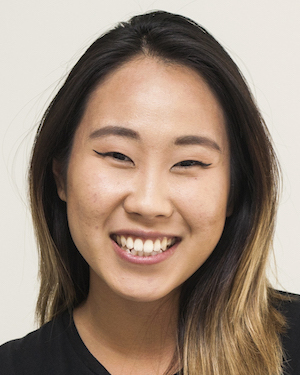
Can I Work In Grad School? ⟩
November 8, 2018, by Joyce
Classes Life Hacks
My answer to you would be that it depends. I know, everyone’s favorite answer to hear. However, I say it depends because it truly is dependent on the kind of learner you are and how efficient you are in managing your time.
In the beginning of the program (summer session) I chose not to work because of the intensity of the program (M-F 8AM-4PM). In addition to the academic and coursework, I was also couch hopping because I literally picked up my entire life and moved across the country. There was a lot of instability and uncertainty during that summer and if I were to add that extra dimension of work, I knew it would take a physical, mental, and emotional toll.
Thankfully I survived the summer program and in the fall semester, I began my Adult Rehabilitation Immersion. Each practice immersion varies but the Adult Rehabilitation one is known for its intense studies in various medical diagnoses and conditions. Therefore, I decided that this semester would not be the best semester to start working because I would much rather absorb and obtain this information to the best of my abilities without any other distractions. Not working and taking out additional loans opened up space in my schedule to read my notes and study a few extra hours.
It was when I began the Mental Health Immersion that I felt that there was enough room and space in my life to add a part time job. Therefore, I began to work as a hostess at a Korean BBQ restaurant. My shifts required me to be in on the weekends. I had a great time, it was nice to be involved in something non-OT related. Don’t get me wrong, I love the profession and I love the people that I interact with but working at a restaurant brings about a different kind of aura. I met many international travelers (as our restaurant is rated 4.5 stars on yelp and highly popular amongst tourists!). I enjoyed the customer service aspect and even casually conversing with people as they walked in and out of the restaurant.
I came home pooped from standing all day but it was nice to be able to make some money and use a different set of skills. So to answer your question, yes it is possible to work while you study. But in the midst of it, remember that you are still a student first and that your academics takes priority. Something that I have learned to do is weighing the pros and cons of the situation. Is it worth losing three hours of sleep every night to work a few hours and do homework to earn maybe $50? I guess it would depend on the kind of part time job you decide to pick up as well. I have classmates who babysit for higher rates for shorter times and others who work longer shifts in the food industry but making most of their income on tip.
So, is it doable? Yes, but it depends.
⋯
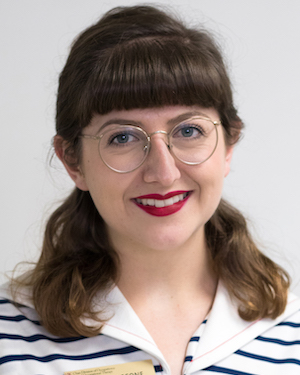
Presenting at Conference ⟩
November 2, 2018, by Antonietta
Classes Getting Involved
The past few weeks have been so exciting (and exhausting). I presented at two conferences; the first was AOTA’s Education Summit, in Louisville, KY, and the second, closer to home, was the OTAC’s annual conference in Pasadena. It was an amazing experience and I wanted to share a little bit about it!
In the second year of the Master’s program, I elected to do Directed Research (OT590) with Dr. Rafeedie, completing 2 units in the Fall and 2 units in the Spring. As I’ve mentioned before, I’m interested in education so I created this experience to do some research about pedagogy and best practices when it comes to simulation. My inspiration for this topic stemmed from being frustrated in some of my courses when asked to role play with my peers. I was quite uncomfortable role playing and I was not convinced it added my clinical skills as a future occupational therapist. From this seed of frustration grew the foundation of our presentations: a low to high fidelity chart for the different types of simulations, an evidence matrix outlining the support for simulation in education, recommendations from the literature about best practice surrounding this instructional method, and finally a piece that I was not expecting at all when I started out. This unexpected piece was the most interesting of them all . . . looking at simulation from the disability perspective.
Upon reflection, this perspective is the root of why I was uncomfortable with simulation in class. Although the goal was to learn, it felt a little bit like a mockery when I pretended to have a prescribed difference. It took looking at this in class requirement from an outside, academic point of view, and discussing it with my mentor to be able to identify the source of this discomfort and start to think critically yet constructively about it. We went to the disability literature and discovered that since the 1990s it has contained a call to stop disability simulation. It cites research which has shown that disability simulation has many unintended consequences. So, we looked further, read more research, and started to build an idea of what types of simulation add to positive educational outcomes and how we can use simulation respectfully and ethically. The bottom line is, we need to be coupling simulation with lived experiences perspectives. As OTs, we valued the phenomenological components of care and recovery that simulation does not provide. These nuances, which simulation simply cannot capture, are what sets us apart from other healthcare professionals. We must be mindful about explicitly including the disability perspective in our curriculum and learning activities.
It was exhilarating to share what we found and developed at the two conferences. Our audiences were very active participants with many questions and different points of view to share. This has been an amazing way to end this project (for now) and it was only possible because of Dr. Rafeedie and USC, so Fight On!
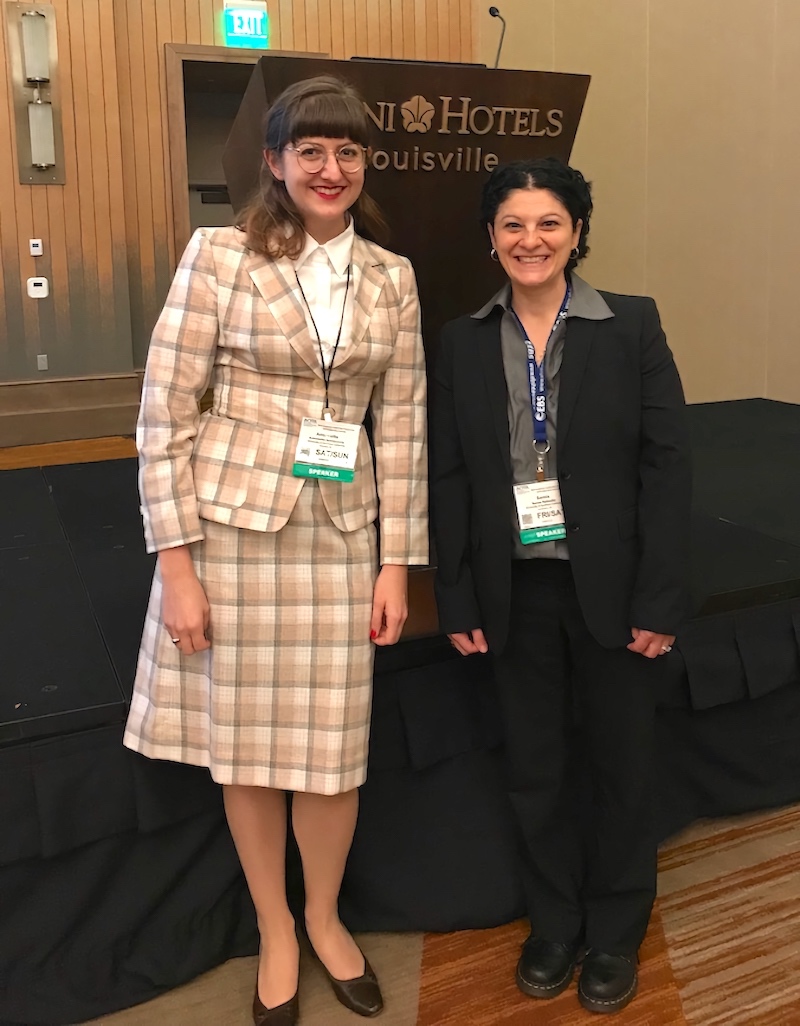
⋯
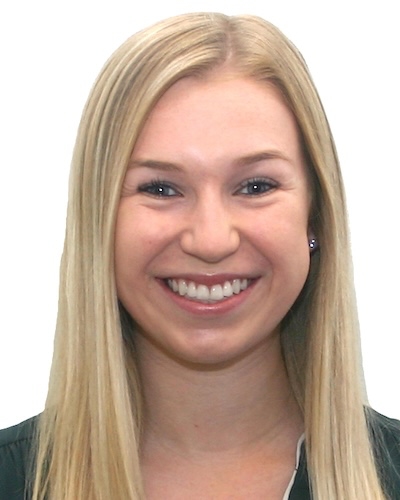
OT’s Role in Lymphedema ⟩
October 16, 2018, by Jessica P.
Classes Fieldwork
The semester is officially in full-swing and students here at USC Chan are immersing themselves in their Level I Fieldwork experiences. As part of our Level I Fieldwork, about halfway through the semester we have classes cancelled for the entire week and we get the opportunity to go to our fieldwork site for the whole week. This allows us to really see what it is like to be an OT in this practice setting. Last week, us second years had our full week and are now back on campus prepping for the second half of our semester.
As part of my adult physical rehabilitation practice immersion, my fieldwork this semester is at an outpatient oncology and lymphedema clinic at Providence Holy Cross Medical Center. If you are anything like me, you may be unfamiliar with what OT’s role in lymphedema is. My clinical instructor is a Certified Lymphedema Therapist (CLT), which is considered an advanced practice area within OT.
But wait . . . what even is lymphedema? When lymphedema occurs in oncology patients, it is called secondary lymphedema. This is when the lymph vessels aren’t able to adequately drain lymph fluid, usually from an arm or leg. Most of the patients that I see are breast cancer survivors who experience lymphedema of the arm or trunk. As part of their OT treatment, they come in for manual lymph drainage, which is a gentle massage guiding the lymph fluid towards areas where there are still good lymph nodes in the body.
OTs also have a critical role in educating and training patients on lifelong management of this chronic condition. It is complex and multi-faceted so OTs may utilize all different interventions such as kinesiotaping, low-level laser therapy, scar mobilization, cupping, and so much more.
One of the biggest things I learned throughout my full fieldwork week was how OTs really play a role in enabling a patient to advocate for themselves. Many of our patients come to us after years of experiencing lymphedema. They haven’t received the treatment they need and have given up. We have the important role of being able to give them hope again, while utilizing an evidence-based practice and allowing them to engage in their meaningful occupations again!
⋯

Teamwork Makes the Dream Work ⟩
October 1, 2018, by Jessica P.
Classes Getting Involved
One of my favorite parts of the USC OT program is that our learning doesn’t just stop in the classroom. Whether it’s going out to a hospital for fieldwork or to skid row to volunteer at the USC Student-Run Clinic (SRC), there are endless opportunities to apply our OT knowledge. One of the amazing opportunities we have to get involved through our Adulthood and Aging course is the Interprofessional Geriatrics Curriculum (IPGC).
IPGC is a chance for us to work with students from different disciplines including physical therapy, medicine, physician’s assistant, pharmacy, social work, and psychology. We get divided into teams and then paired with an older adult living in a low-income community housing complex.
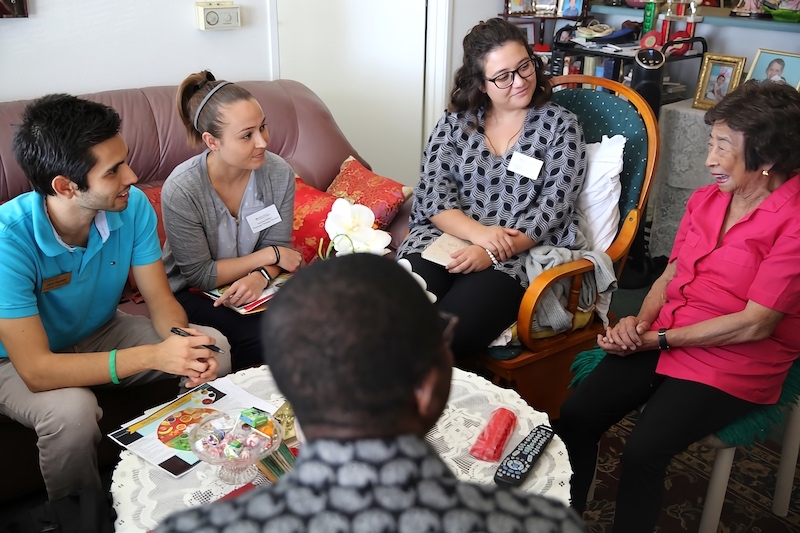
IPGC students meeting with their resident. Photo credit: Claire Norman, MSJ (courtesy of the Keck School of Medicine of USC)
Throughout the semester we spend a few Friday afternoons at the community housing complex where we get brief lectures on topics related to our visit, such as oral health, cognition, fall prevention, and psychosocial issues. After our lecture, we meet with our older adult to learn more about them and apply what we learned during our lecture.
This past Friday, I had my first IPGC visit where we started out the afternoon with a lecture on medication management and nutrition in older adults. Professors from pharmacy and medicine gave us resources, such as the Beers list, to utilize in our future practice.
After our lecture, we broke up into our teams and met our older adult who we will be working throughout the rest of the semester. We spent a lot of time building rapport with our resident and getting to know her story. My teammates and I discussed her various medications and different side-effects that may occur from those. As an OT student, my main role was teaching her how to utilize a pill box organizer and implement taking medications into her daily routines. We also discussed the importance of healthy, balanced meals and how this can influence the aging process.
The afternoon flew by so quickly that we were all sad to have our time come to an end. I felt as if we really got to know our resident and build rapport with her. After we met with our resident, our team debriefed on what went well for us as a team and identified strategies to improve on for next time. As occupational therapists, we often work in teams so learning how to navigate conflicts and communicate effectively is key and IPGC is the perfect place to begin practicing this.
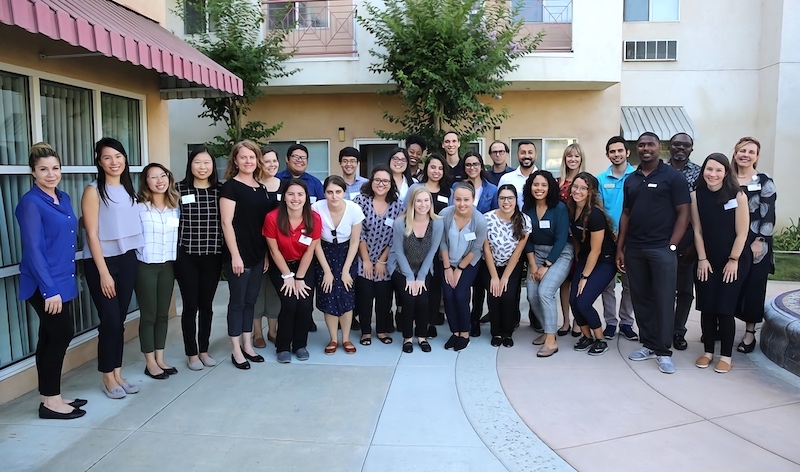
IPGC students. Photo credit: Claire Norman, MSJ (courtesy of the Keck School of Medicine of USC)
⋯
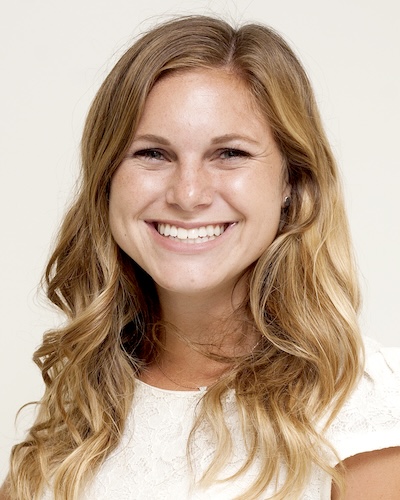
over and OuT! ⟩
May 4, 2018, by Ali
Classes Externships Getting Involved
As of 9:30AM today I completed my last final of my Master of Arts Degree in Occupational Therapy. This realization just hit me and the nostalgia is real. Although I will be continuing on with the USC Chan Division of Occupational Science and Occupational Therapy to complete me Doctorate of Occupational Therapy with The Huntington Library, Art Collections, and Botanical Gardens implementing inclusive programming for guests! I am so excited for this next chapter, but right now I want to take a moment to reflect on some of the great moments of this semester that got me to this point.
1. Externship
As Caroline, Erika, and Kaitlyn mentioned in their blogs over the last months this semester we were given the chance to create our own leadership experience to build our professionalism, communication, and overall understanding of occupational setting in a new setting. A classmate and I continued the work we began in OT 537: Occupation-Centered Programs for the Community. We worked with The Painted Turtle, which is an organization that provides year round camp based programming to children with serious medical conditions. Over the externship I was able to observe new leadership styles in a non-clinical based setting that does not currently have an occupational therapy on staff. We were able to use our occupational lens in a new setting. This opportunity was formative in my decision to complete my residency at The Huntington because I was able to solidify my passion for inclusive programming and the value OT has in community settings.
2. The American Occupational Therapy Association Annual Conference
In April I was able to attend my first national occupational therapy conference in Salt Lake City, Utah. I had no idea how much I was going to enjoy the conference and the opportunity to attend presentations given by researchers and leaders in the field that I have been reading about for the last five years. The chance to network with occupational therapists all over the country across so many practice settings was inspiring as I go out into the profession. I know there are endless possibilities in how to create my own practice. I was impressed and honored to be an occupational therapy student entering the profession with so many passionate and hard-working leaders. I am excited to start my residency and hopefully become one of the leaders someday!
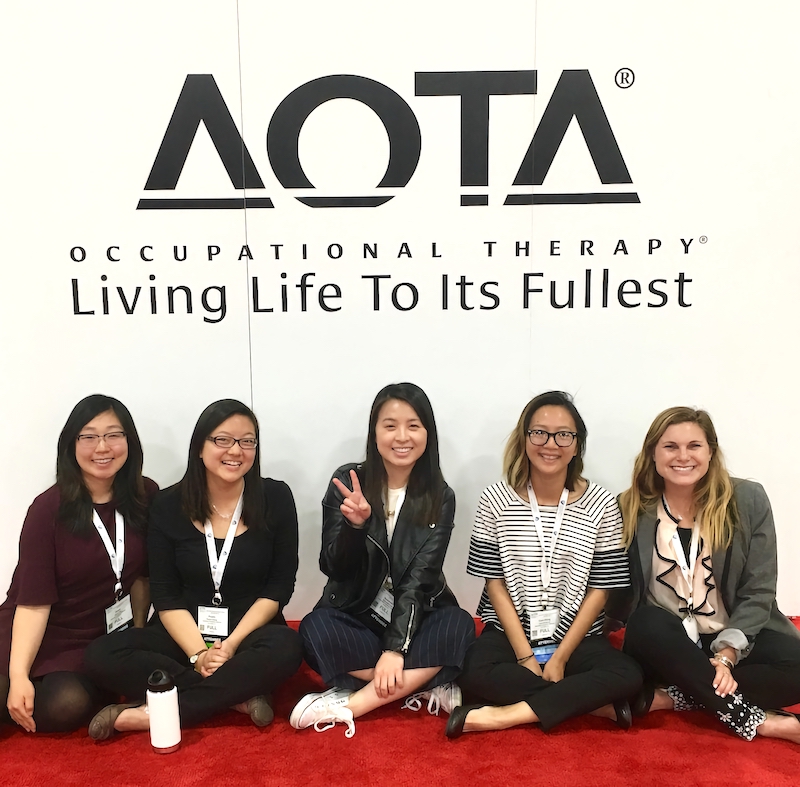
Fun at AOTA!
3. Comprehensive Exam
Although I have officially finished my finals, I still have the comprehensive exam left! This is an exam that is a compilation of content from the following seven courses: OT 515 Advanced Neuroscience, OT 518 Quantitative Research for Evidence-Based Practice, OT 525 Qualitative Research for Evidence-Based Practice, OT 534 Health Promotion & Wellness, OT 538 Current Issues in Practice: Adulthood and Aging, OT 540 Leadership Capstone, and OT 545 Advanced Seminar in Occupational Science. Although this is a daunting exam, it is also a very meaningful way to complete the program. As this is an opportunity to look back at the foundational courses that have built my occupational lens. I am confident that upon completion of this exam I will have the tools I need to complete my final fieldwork and pass the National Board for Certification in Occupational Therapy.
4. Electives
I have appreciated this last semester of classes because I was able to take courses that I have a particular interest in learning more about. In addition to gaining a unique view into the theory and intervention of sensory integration I was also able to hone different styles of therapeutic communication. Not only were these courses full of interesting content, but also the opportunity to take classes with students from other cohorts and have professors for the first time. I loved that this semester was different from all the others and allowed me to meet new people and learn new concepts.
Finally, as this is my last blog post, I wanted to take a moment to thank you all for reading and emailing us such thoughtful questions. I am grateful for the opportunity to meet and speak with so many of you as you learned about OT! Fight On!
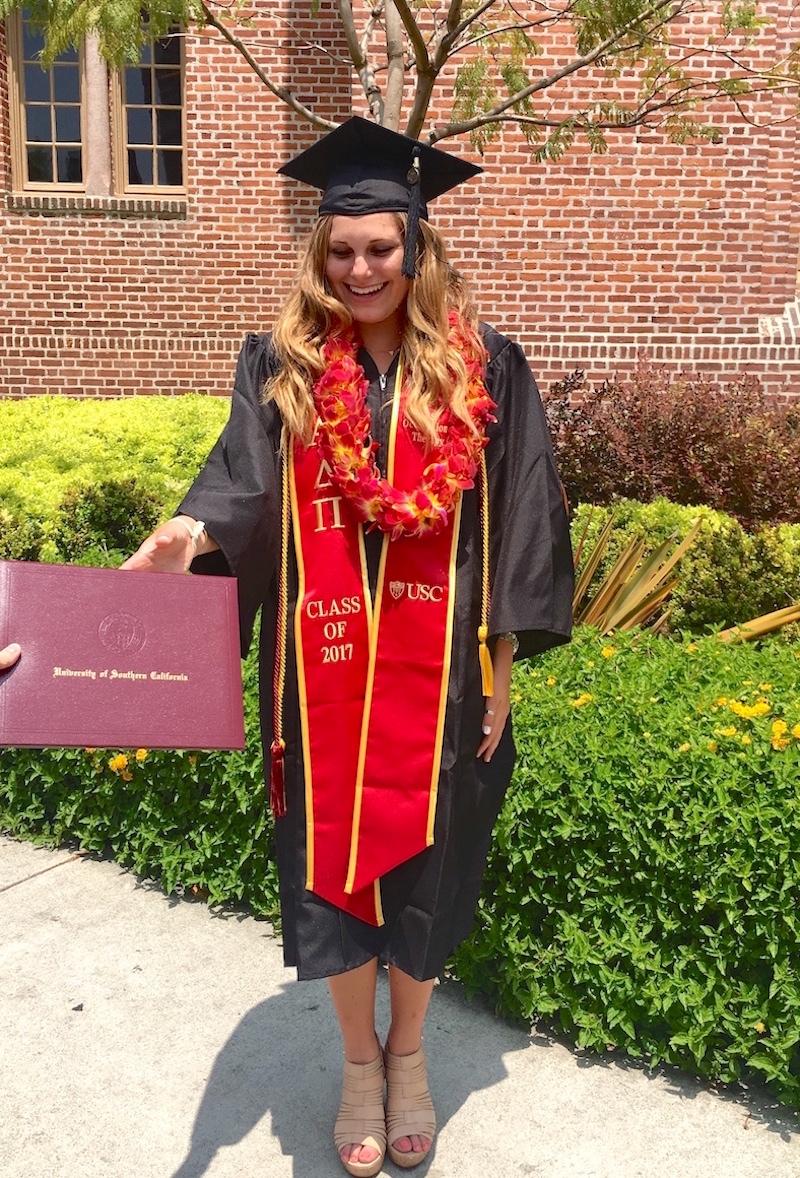
Ready to receive another diploma from USC!
⋯





